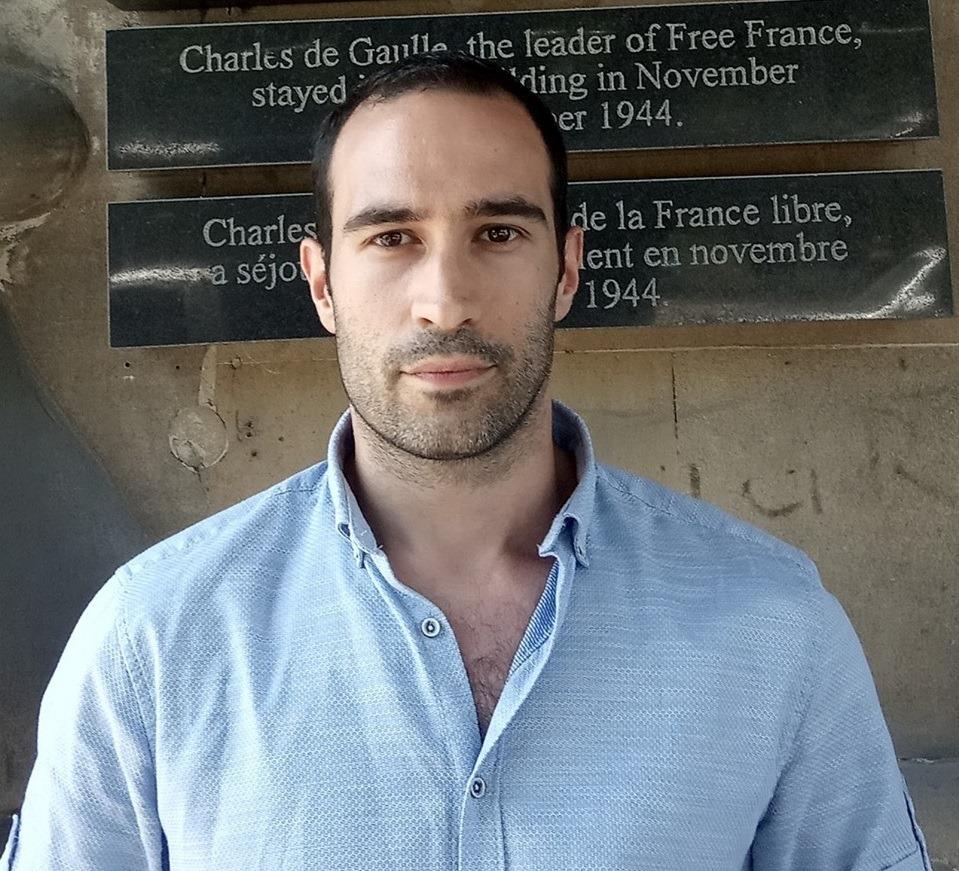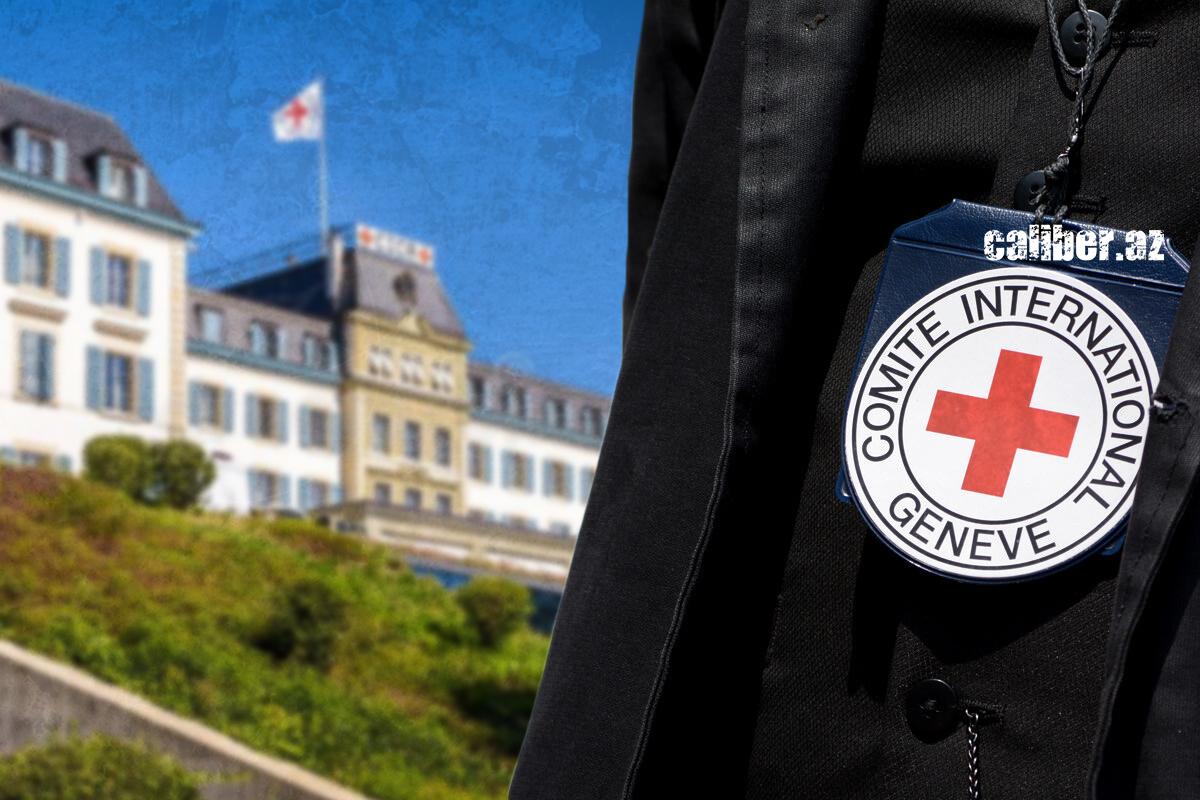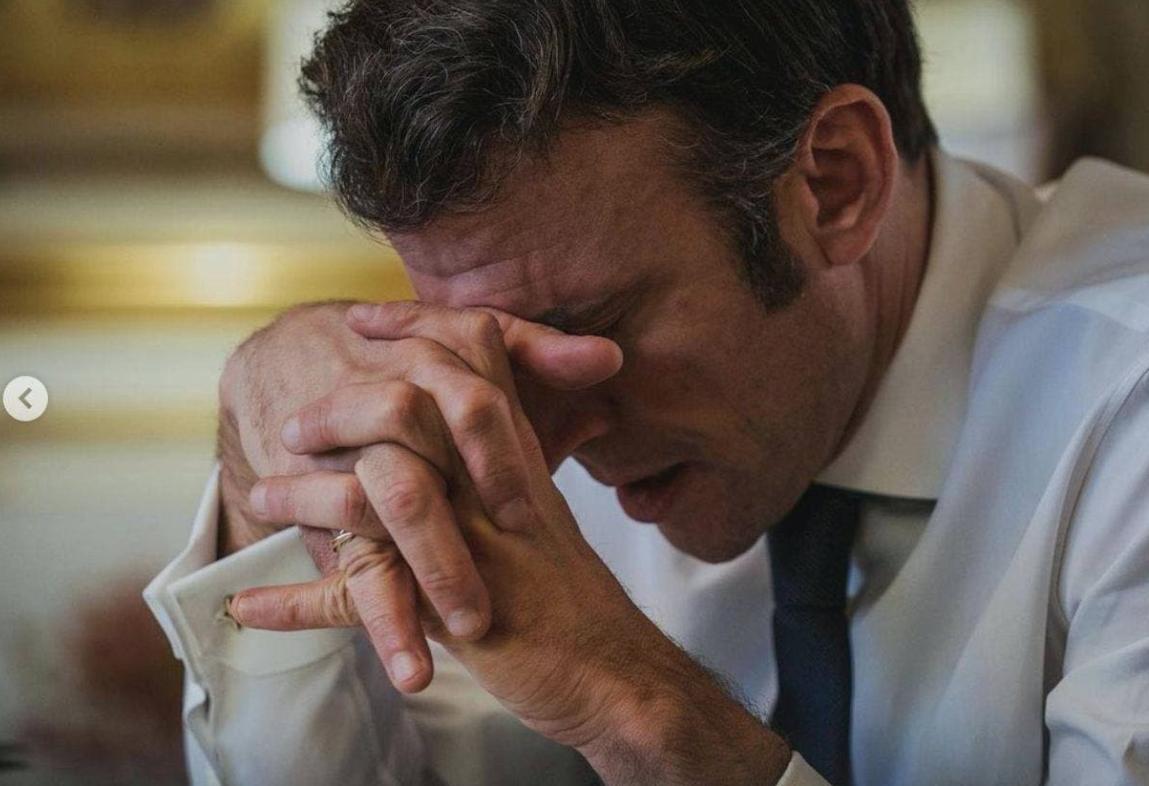DGSE: From language courses to eliminating politicians The bloody underbelly of French spies
At the end of 2023, an agent network of French special services was uncovered, which operated in Azerbaijan, Ukraine, Moldova, Georgia, and several other countries in Eastern Europe, the Middle East, and Central Asia. The incident was the last straw, and on December 20, 2023, French President Emmanuel Macron, angered by the chain of failures of its intelligence services, at a meeting of the Council of Ministers, fired the head of foreign intelligence DGSE Bernard Emié
Martin is a victim of French "diplomats"
The day after Bernard Emie's dismissal on December 21, it became known that the DGSE spy network in Azerbaijan had been uncovered.

As a result of the operation of the State Security Service of Azerbaijan, French citizen Martin Ryan was detained on December 4. On December 26, the French Ambassador to Azerbaijan Anne Bouillon was summoned to the Azerbaijani Foreign Ministry, where she was informed that two employees of the French diplomatic mission were declared persona non grata by the Azerbaijani government. These persons were ordered to leave Azerbaijan within 48 hours, and the French ambassador was handed a corresponding note from the Foreign Ministry.

The arrest of a French citizen in Azerbaijan was not an ordinary detention of a suspected spy. We are dealing with the identification and disclosure of the French spy network, which operated in Azerbaijan under the leadership of intelligence agents working under diplomatic cover. As the French edition of L'Opinion wrote, initially no one connected the detention of Martin Ryan with the statement of Azerbaijani security services about the exposure of the French spy network in Baku. However, it later turned out that Ryan was connected to those French "diplomats" who were expelled from the country.
After his detention, Ryan voluntarily cooperated with the Azerbaijani law-enforcement agencies. The investigation showed that the residency inside the French embassy on the territory of Azerbaijan carried out intelligence activities against several countries. It became known that in connection with the criminal case, which was conducted by the Azerbaijani SSS, a number of persons were arrested for intelligence activities against Azerbaijan, Georgia, and Ukraine.
As a result of the investigation, dozens of French secret agents were uncovered, some of whom served or continue to serve in Azerbaijan, and some of whom work in neighboring countries and international organizations. The special services of Azerbaijan obtained evidence and documents on the activities of the French residency in the region of the South Caucasus, the Middle East, Ukraine, and Moldova.
French journalist of Armenian origin Leo Nicolian earlier told how Martin Ryan was recruited and what dirty methods the intelligence of the Fifth Republic used against him. Nikolyan, who talked to Ryan's lawyer and family, said that Martin decided to develop a business in Azerbaijan, where he moved 5 years ago. According to him, Ryan was earning good money in Azerbaijan and even got engaged to a local girl.
"Last year, representatives of the French intelligence services visited Martin Ryan. They were two 'diplomats' from the French embassy. These DGSE people met with Ryan, introduced themselves, and offered him to become their informant and work for them.
Martin refused: "I'm not interested, I already have a job."
But the men continued to insist: "You have no choice. An accident can happen quickly, think of your father or mother. There are people who commit suicide. We can ruin your company because we can block your goods coming from France at customs and we can make you a tramp to Baku." But Martin refused. However, the pressure on him grew steadily. And finally, he gave in," Leo Nicolian said.
Why exactly could Ryan be useful to the French secret services? The fact is that Martin Ryan distributed foodstuffs and bases for preparing sauces for many restaurants in Baku. Restaurants are people, which means communication, from which useful information can be extracted. Especially since Iranian restaurant is often visited by IRI diplomats and the Iranian community, American restaurant is often visited by employees of the American embassy. Restaurant owners who were his clients, as well as some waiters, became Martin's informants.
"After a few months, Azerbaijani intelligence services got onto Martin. Ryan came under the surveillance of Azerbaijani special services and he is arrested. Since December 4, he has been in pre-trial detention. He is detained for espionage and faces a sentence of 10 to 20 years in prison," Nicolian said.
France's agents against Azerbaijan
The fact that French special services are working against Azerbaijan is not a secret. Thus, during the 44-day war, it became known that Lebanese Hicham Diab, an employee of the International Committee of the Red Cross, was collecting information of a secret nature on the instructions of French intelligence and even tried to photograph military facilities in Azerbaijan. After Azerbaijani counterintelligence exposed the French spy, he was expelled from our country. However, Diab's patrons sent him to Armenia, and there he became a project manager at the ICRC branch in Yerevan. In each of his statuses, this unmasked French spy signed his love for Armenians and his hatred for us.

In their work against Azerbaijan, French special services use various methods: from direct espionage to propaganda and slander campaigns. Another direction of anti-Azerbaijani activity of French special services is the activity of inciting separatist sentiments in Azerbaijan. Here is one of the examples. On May 13, 2016, a specialist of the French Institute of Oriental Languages and Civilizations, Dr. Gilles Authier, held a conference on "Linguistic minorities in Azerbaijan" at the French Cultural Center in Baku.
Here is what one of the participants in the conference writes: "The ethics and behavior of Gilles Autier leave a very unpleasant residue at these conferences. During the discussion of reports, against the background of the attentive and friendly disposition of Gilles Authier towards representatives of small ethnic groups, his biased attitude towards ethnic Azerbaijanis was clearly emphasized. During interesting discussions, he interrupted the participants and prevented them from speaking, showing disrespect for the history of Azerbaijan and Azerbaijanis. When asked to respect ethnic Azerbaijanis, Gilles Authier rudely cut off with the phrase - "it is enough that I know the Azerbaijani language".
The same French scholar held four seminars on the Caucasus-Persian (Tatar) dialect at the Faculty of Oriental Studies of Yerevan State University in March 2023. Arpine Arushanyan, a teacher of the Faculty of Oriental Studies of Yerevan State University, who was the organizer of these seminars and also the wife of Vardan Voskanyan, the head of the Center for Iranian Studies at the Faculty of Oriental Studies, an ardent hater of Azerbaijan and Turkophobe, wrote about it in her Facebook account.
We dare to assume that the person who treated Azerbaijanis so rudely in Baku spoke in Yerevan not about dialects of the Tatar language, but about separatist aspirations of some representatives of small nations in Azerbaijan.
Failures everywhere
But let's return to the liquidation of the French spy network in Azerbaijan. The failure in Baku was another fiasco of the French intelligence services, but not the last. A series of scandals that shook the French intelligence community continues, and DGSE was at the center of another one.
Thus, on February 20, 2024, it became known that the National Intelligence Organization of Turkey (MİT) detained three people who spied for a year in favor of the French Directorate General for External Security (DGSE). The network, led by Syrian national Ahmet Keiti, provided the DGSE with information about Turkey's migration policy as well as information about Syrian refugees in the country.
With this data, leaders of Paris-based non-governmental organizations (NGOs) under the control of French intelligence tried to "smear" Turkey on the international stage, claiming that Ankara allegedly uses torture in refugee detention centers and thus violates human rights. The group was linked to the Paris-based non-profit organization Collectif des Amis d'Alep, with which they had developed a relationship mediated by French intelligence. The detained suspects were also promised asylum in France.
Over the last 10 years, the DGSE has also failed to properly analyze the situation in individual countries, especially in Africa, resulting in constant failures. For example, Macron's trip to Rwanda ended in total disgrace, even though it was planned as a triumphant return.
Then, four DGSE officers were detained at once in Burkina Faso. Paris denied that the detainees were intelligence officers, saying they were technicians. However, the departure from Burkina Faso of two dozen French citizens following this detention did not go unnoticed. Such a mass exodus clearly indicates the destruction of a spy network and is commonly referred to as an evacuation. According to Burkina Faso authorities, they have evidence of espionage by the French. The French have also completely abandoned neighboring Niger.
The deputy head of the DGSE, four-star Gen Olivier Bonnet de Payeret, did not wait until he was kicked out of the intelligence service in disgrace and resigned on September 23, 2023. And he was right, as President Macron was furious at the unprofessionalism of his spies.
The weekly magazine Le Canard Enchaîné wrote then that on July 29, 2023, during a Defense Council meeting, Macron lashed out at the head of his foreign intelligence service.

"Macron is furious with the DGSE, whose agents did not foresee the impending coup d'état in Niger. In the middle of a Defense Council meeting, the president attacked the intelligence chief: 'Niger after Mali is too much!'
Analysis of French spies' activities has shown that the reason for the failures was their blatant unprofessionalism. For example, in 2018, French television channel BMFTV reported that DGSE agents were easy to detect and identify because they used a free mobile running app called Strava that revealed their movements and identities.
By analyzing sports performance based on user accounts, it was possible to detect many DGSE agents who went out for a jog during their lunch break. According to the weekly Le Canard Enchaîné, the app can be used to track DGSE agents jogging around the DGSE headquarters on Boulevard Mortier in the 20th arrondissement of Paris.
The use of the Strava app by DGSE agents made it possible to geolocate one of them while in Iraq. Others were spotted near one of the most important listening stations in France and near another listening station located in Africa. Journalists were also able to learn the exact location of a secret French military base abroad.
The French weekly Le Point drew attention to a mysterious fire at the Paris headquarters of the DGSE in 2016, when the so-called "spy tower" (La tour des espions) burned down. The building was completely evacuated and the information was immediately labeled Military Secret. It was impossible to know whether the disaster was accidental or not. It was also impossible to know the amount of damage caused by the flames. At the same time, the then head of the DGSE, Bernard Bajole, extorted money from the entrepreneur Alain Duménil to cover up the disappearance of "tens of millions from the DGSE's secret funds".
Thanks to the total negligence of DGSE employees, the secret plans for the DGSE headquarters were made public in 2012.
In October 2023, former DGSE officer Jean-François Lhuillier was detained for disclosing military secrets. In June, Lhuillier published a book in France, "The Man from Tripoli," in which he described his work in Libya from 2009 to 2012, until the overthrow of the country's leader, Muammar Gaddafi. In an interview with the newspaper Jeune Afrique on the occasion of the book's release, Lhuillier said that in Tripoli, where he was engaged in maintaining "useful contacts", were aware of his work for foreign intelligence and through him sometimes transmitted various messages to Paris bypassing the embassy. On September 15, another former DGSE intelligence officer was detained.
Like Lhuillier, he published a memoir under the pseudonym Richard Volanges and described his work in Africa and how he tracked down, as far away as Djibouti, French Islamist Peter Cherif, who was close to the Quacha brothers who attacked the editorial offices of the weekly Charlie Hebdo in Paris in 2015. In 2018, Cherif was arrested and taken to France.
Recruitment methods
Observations show that French intelligence services use a variety of methods and tools in their intelligence and recruitment activities, often relying on French diplomatic, economic, and educational missions around the world, as well as French NGOs.
For example, most French embassies have a Department of Cooperation and Culture (SCAC) that implements cooperation programs with its partners to support civil society and innovative businesses, promote the French language and Francophone culture, and foster university and scientific cooperation. This department also recommends a list of Western-funded NGOs and individuals to receive orders and medals awarded by the French government to foreign nationals.
Another intelligence tool operating in French embassies is the French Development Agency (AFD), which is a government agency and a key player in French development policy. AFD works in many sectors such as energy, health, biodiversity, water, digital technology, and training. AFD's network of 85 agencies is present in 109 countries and supports more than 3,500 development projects. And billions of euros are spent on these projects.
After the embassies, the second largest residence of the French intelligence services is centered in an institution operating under the name Institut Français. It is a public institution created to extend the French cultural sphere of influence, operating within the Ministry of Foreign Affairs and the Ministry of Culture. The 98 Institut français operating in different countries include 26 French research institutes from the network of French cultural institutions and 131 cultural cooperation services. They operate as diplomatic agencies attached to embassies and their activities are controlled by the state. It should be noted that the French Institute has a representative office in Azerbaijan as well.
The French government also offers scholarships for foreign students, which are actually an invitation to the French intelligence services to bring their most valuable agents to France and prepare them for future intelligence activities.
There is a foreign language school in Strasbourg that could be called a division of the intelligence services. The French intelligence services even control the language courses and select foreigners who study languages at these courses.
Every candidate for a position as an operative in the French security services undergoes a rigorous psychological endurance test. This test is repeated every five years. Information about the relatives of the future employee is collected, and he is required to comply with such conditions as not to disclose his ties with the intelligence services, significantly reduce activity in social networks and leave the country only with the permission of the intelligence services. The recruits undergo special training for 17 weeks that even teaches them how to "manage" their social media activity. Agents go through about 50 weeks of training before they are sent to work abroad.
In addition to officers who speak the languages of countries with large populations, the French intelligence services employ foreigners studying at French universities to work with other minorities.
The hydra of the French intelligence services
When analyzing the intelligence operations conducted by French intelligence services around the world, one can confidently state that they were conducted by the Directorate General of External Security (DGSE). However, other intelligence agencies in France are also involved in intelligence and counterintelligence activities.
Agencies such as the Directorate General of External Security (DGSE), the Directorate of Defense and Security (DPSD - Military Counterintelligence), the Central Agency for the Security of Information Systems (SCSSI - Cryptography), and the Brigade of Electronic Warfare (BRGE) are subordinate to the French defence minister
The Directorate of Military Intelligence (DRM) reports to the General Staff of the French Armed Forces.
The Directorate General of Internal Security (DGSI - Internal Intelligence) and the Directorate of Territorial Security (DST - Counterintelligence) are subordinate to the French interior minister.
According to the law on the French Ministry of Defense, the DGSE is responsible for promptly receiving classified and sensitive information related to the security of the French Republic and taking action against threats. The DGSE is the main body of the special service that carries out "political intelligence" with a network of agencies both inside and outside France.

The duties of the service include:
- Conducting agent and operational and technical reconnaissance abroad;
- conducting electronic reconnaissance in foreign countries (including obtaining confidential and top-secret documents of foreign countries, monitoring communication systems and deciphering the obtained confidential information);
- satellite video reconnaissance (RER) (via the Helios satellite);
- collection and analysis of data on publicly available computers and networks;
- analyzing political and military information gathered from open sources;
- conducting special operations overseas.
Members of the intelligence services travel abroad disguised as diplomats, trade representatives, journalists, and other fronts, using false documents and credentials. Typically, the service's residence is in French embassies or diplomatic missions.
Despite being subordinated to the Ministry of Defense, the majority of its staff are civilians. According to information published in the media, there has recently been intensive recruitment of high-level specialists in fields such as economics, computer science, and exact sciences.
The Intelligence Department under the Directorate of Military Intelligence was later split into the "Political Intelligence" (Service de renseignement politique, PRS) and the Foreign Counterintelligence Directorate (Service de renseignement de sécurité, SR).
Based on information available in open sources, it can be concluded that the Political Intelligence Service conducted operational (recruitment and work with agents) and information activities (analysis and processing of information received from the agency) with specialized units (military, economic intelligence, culture, education, etc.) in North Africa (Maghreb), Sub-Equatorial Africa, the Middle East, the Balkans, Eastern Europe, and the South Caucasus.
The General Directorate of Security monitors the activities of enemy intelligence services and verifies sources. The French intelligence services are also known for "infiltrating" insurgent and terrorist organizations, intensifying and expanding their work.
Bloody trace in Africa
When it comes to French foreign intelligence, it is necessary to note its involvement in numerous crimes. The working methods of this intelligence service are not much different from the actions of terrorists.

"Since 1963, 22 African presidents who defended their countries' independence and refused to go along with France have been assassinated by DGSE agents," writes Iranian portal Tajammo3, adding that "DGSE is the main secret service tasked with controlling 'black governors' - a term France uses to describe African puppet presidents under its control."
The Elysee Palace's bloodiest action in Africa was its participation in the terrible massacre in Rwanda in 1994. On April 4, 1994, a surface-to-air missile shot down a plane with the presidents of Burundi and Rwanda on board. Immediately after the attack, Rwandan army soldiers and Hutu militias began massacring Tutsi citizens of Rwanda. Western "peacekeepers", including the DGSE special forces, chose not to intervene, citing the "UN observation mandate".
One of the foulest crimes committed by the DGSE was the assassination of Burkina Faso's president and popular favorite, Thomas Sankara, on November 15, 1987.
On January 16, 2001, President Laurent Kabila of the Democratic Republic of Congo, who led the uprising that ended Mobutu's dictatorship, was assassinated under mysterious circumstances. Some sources link this crime to the DGSE.
The list of crimes committed by French intelligence services is extensive, but the assassinations of independent African leaders did not contribute to the preservation of French colonial power in Africa. The decline in the quality of the French intelligence services is closely linked to the degradation of France's foreign policy strategy, whose leaders have failed to realize that the colonial era is a thing of the past and that no act of terror can turn back the clock.
In conclusion, France is losing more and more of its influence in the international arena with each passing day, which is due in no small part to the ineffectiveness of its intelligence services. The problems of the French intelligence services stem from their excessive size, lack of integration, heavy dependence on political decisions, and a critical lack of proper control and transparency in financial matters.








